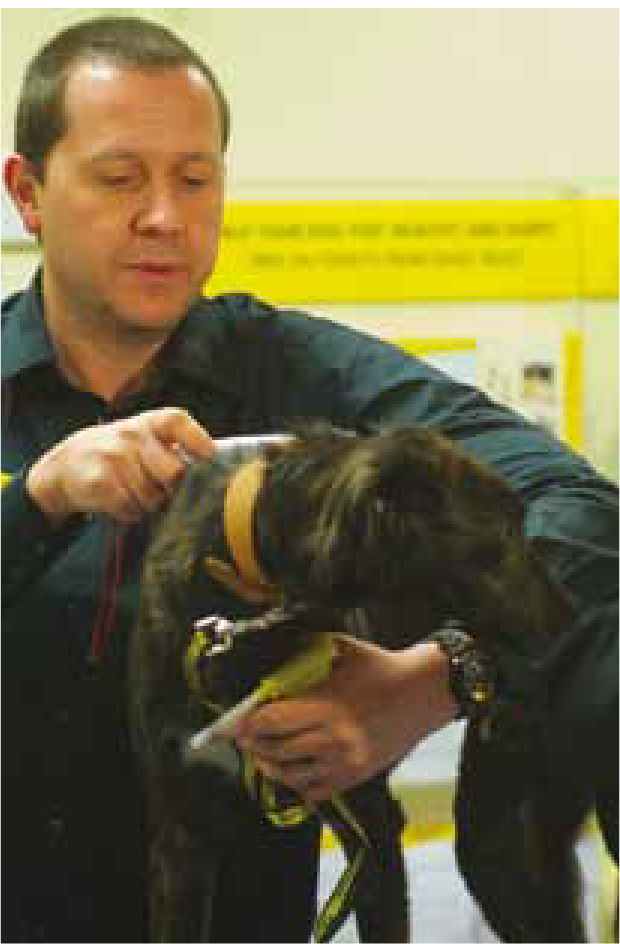
Dogs Trust have been campaigning long and hard for the introduction of compulsory microchipping for every dog in the UK — and on February 6 The Secretary of State for the Department of Environment, Food and Rural Affairs (Defra), Owen Paterson, finally made the announcement that it would become law in 2016.
In the recent Government announcement, Mr Paterson stated that all dogs in England will have to be microchipped by April 2016. In a nutshell, we at Dogs Trust together with many other animal welfare organisations have been asking government for this law for many years, simply because we believe that microchipping has proven to be the most effective way of ensuring lost dogs are returned to their owners. As such, the change in the law will go a very long way to help reduce the stray dog problem in this country.
As the UK's largest dog welfare charity we handle an awful lot of stray and unwanted dogs; last year 16 000 in all. Some of these dogs are what we term ‘hand overs’, passed on by their owners for a myriad of reasons. Many of the reasons are genuinely heartbreaking; some are not. However, those bewildered dogs which arrive in a rescue centre simply because they got lost and couldn't make their way back home, are truly upsetting.
If these ‘lost’ dogs had been implanted with a microchip so much heartache could have been avoided. There would be no scared, confused dogs looking for their beloved human, and no distraught owners searching for them. We've all seen those pitiful Lost Dog posters on trees in our neighborhoods. This new law will go a long way in preventing all that.
Beside the undoubted emotional benefits, the new compulsory microchipping law will also have significant financial benefits too. Local authorities in the UK were unable to return over half (52%) of stray dogs in 2010/11 — a total of 65,612 dogs — because they were carrying no form of identification. Compulsory chipping will help reduce the burden on animal welfare charities and reduce the cost to local authorities of kennelling, which could save the public purse anywhere between £20.5 and £22.8 million per year.
Humanely reducing the stray dog population is at the heart of everything we do. For the past 10 years we have committed a considerable amount of money to ensure that all dog owners, no matter their income, can afford to have their dog chipped. We also offer free chips and microchip training to all local authorities in the UK. The beauty of the microchip is that it involves a one-off cost but the benefits last a life time.
So, we have committed to providing free chips for all who need them. Each of our 18 rehoming centres have been supplied with a huge number of micro-chips so that every single dog owner in England can make an appointment and come along with their dog and get him chipped, absolutely free of charge.
We estimate that if we can chip and register half of the currently unmicrochipped dogs in England it will cost us around £3 million. We hope that much of this will be recouped by asking those who can afford it to give a donation. The average cost to us for each chip and dog registration is around £3 as we buy them in huge quantities.
Many people have asked why, as a charity, Dogs Trust is giving something away for nothing. Our answer is that with stray dogs, as with many things in life, prevention is so much better than cure.
And, as much as we love the dogs in our care, we'd far rather they stay with their owners than come to us. We're using our funds and expertise to tackle the stray dog problem at both ends, save lives and reduce the need for rehoming services.
Of course, like any legislation, there needs to be proper enforcement for it to be truly effective. Equally, dog owners absolutely must remember to call their chip database to update details when they move home. But these matters aside, we are truly delighted, as the future of canine welfare just became a whole lot brighter.

